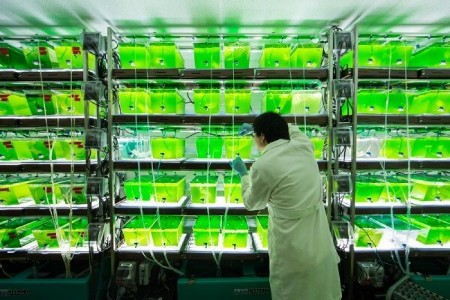Last week Jennifer Doudna, the co-discoverer of CRISPR/Cas9, was a presenter at the Nobel-sponsored virtual conference, “Our Planet, Our Future.” Herself a Nobel prize winner, Doudna talked about using her genetic scissor, the CRISPR/Cas9, to improve the genome of plants to improve food security. One of the projects focused on enhancing rice which remains a key staple for more than half of the world’s population.
If you are not familiar with CRISPR, it gives scientists the power to edit DNA to cure diseases, enhance biology, address world hunger, and if desired, alter humanity. CRISPR/Cas9, the Cas9 referring to a particular protein produced in cells, has the ability to excise bad DNA code and replace it with correct or enhanced genetic sequences using a snip and replace technique that can be used over and over again within a single cell. In other words, it’s a tool to reinvent biology. But more than that, it can be a tool to create alternative energy sources to wean us off fossil fuels.
One line of research is using CRISPR/Cas9 to create new microorganisms that produce biofuels. Think algae on super steroids churning out tons of environmentally green fuels to replace oil and natural gas. When biofuels are burned they emit 60 to 90% less greenhouse gas (GHG) emissions than fossil fuels. Enhancements to microorganisms like algae and bacteria could produce hydrogen, bioethanol, and biodiesel, reducing GHG emissions to zero.
The current research is using CRISPR/Cas9 to alter the metabolic pathways within these single-celled creatures to increase lipid content and enhance carbon fixation. The combination not only produces the base product for biofuels but also contributes to carbon capture and storage.
In other research with CRISPR, a University of California, San Francisco team is experimenting with a version 2.0 of CRISPR/Cas9 that not only can correct defective genes in a cell but also pass the improvements on the cell’s descendants. The enhancements to the CRISPR/Cas9 tool, the team has named CRISPRon and CRISPRoff. In other words, the enhanced tool can flip genes on and off without damaging the DNA. In experiments, the team has targeted over 20,000 genes in human kidney cells using the tool like a light switch. When CRISPRoff has been used the team has been able to pass along the genetic mutation through 450 cellular generations.
Practical application of the technology can be used to tackle diseases like Alzheimer’s, stopping the protein associated with the condition from being expressed. But don’t stop there. This discovery could change gene editing forever. How so? We can create synthetic organisms and reprogram them to help us deal with the challenges we face in the 21st century from pandemics to climate change. We can stop mutations in their tracks. Think of all the current COVID-19 variants that are a troubling addition to the global pandemic. Or improvements we can make to food security as we harden crops to withstand the worst that climate change can throw at us. And changes we make using these CRISPR/Cas9 enhancements are not only programmable but also inheritable.
















